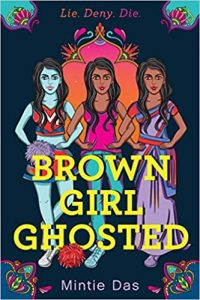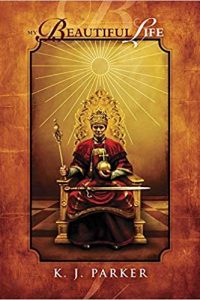Paul Di Filippo Reviews My Favorites by Ben Bova
 My Favorites, Ben Bova (Blackstone 978-1094000923, 352pp, $24.99, hardcover) October 2020
My Favorites, Ben Bova (Blackstone 978-1094000923, 352pp, $24.99, hardcover) October 2020
Ben Bova turns 88 in November of 2020. He also just published a new novel, Uranus, a few months ago. Two statements of this general import are not usually compatible. Writers who continue to maintain their productivity—and personal standards of quality—so late in life form a small elite. In our field, we note such towering figures as Jack Vance and Jack Williamson and Clifford Simak; Carol Emshwiller and Kit Reed. The sources of such fountain-of-youth durability are mysterious and different from one writer to another. Let’s just be grateful that such specimens exist.
We can certainly grant a fellow in Bova’s longevous position the desire to look backwards for a moment. Such an impulse has led to the current collection, which assembles 14 of the author’s best tales, per his choosing. (Short, sharp introductions explain why.) The earliest item dates from 1984, while the newest hails from 2014. They are all eminently entertaining and very well-crafted, and together represent a worldview of optimism and triumph over adversity that was once considered synonymous with science fiction—or at least synonymous with the kind of SF which was distinct from that equally vital branch of the literature that was killing off humanity with plagues, nuclear war, ignorance, and unforeseen blowback of good intentions.
“Monster Slayer” has resonances with the earliest work of Allen Steele concerning orbital construction, but also with the classic Heinlein tale “The Green Hills of Earth”, in terms of future legend-making. In a Greenhouse Earth scenario, our Native-American hero, Harry Twelvetoes, struggles with his inner demons and an array of societal challenges to find his bliss, becoming larger-than-life in the process. “Muzhestvo” is a little vignette featuring Jamie Waterman, star of Bova’s Mars cycle of novels. As an unofficial part of his astronaut training, Jamie finds himself at the mercy of some rambunctious Russians who have a dangerous initiation rite in store for the newbie—who comports himself with dignity and bravery.
These two initial tales serve to acquaint us with Bova’s stripped-down transparent prose, highly effective for his purposes; his rigorous near-future scenarios; and his foregrounding of traditional virtues and values, with no little respect nonetheless for those who just don’t quite fit in.
Next up is a surprise, if you thought you had sussed out all of Bova’s tricks: a sequel to the famous film Casablanca, titled “We’ll Always Have Paris”. Nice and faithful characterizations limn a probable postwar outcome for Rick and company. “The Great Moon Hoax, or A Princess of Mars” takes place around 1961—but not in our familiar continuum. With real Martians and Howard Hughes as hero, the funny tale has a Men in Black vibe. The multiverse gets a shakeout in “Inspiration”, as our timeline-hopping protagonist finds himself tasked with lending a hand to one of humanity’s nascent geniuses at a Jonbar Point. Again, a vividly sketched mundane setting adds force to the tale. “Scheherazade and the Storytellers” takes the reader back to the fabled era of Haroun al-Raschid to identify the commonality of all narrative entertainers across the eras, with humor and irony.
If you could imagine an archetypical Astounding story, say maybe by Eric Frank Russell, which concerned itself intimately with engineering and bureaucracy, you might come up with “The Supersonic Zeppelin”. A group of scientists and tech guys, led by a rebellious MBA supervisor, conceive of a unique type of aerial transport and work their hardest to bring it to life. A few overbroad surnames—“Memo” for a government official; “Sequoia” for an eco-protester—are the only false step.
Almost coeval with Andy Weir’s The Martian comes “Mars Farts”, which finds a trio of explorers stranded on the Red Planet at the point of death. Their ingenious self-rescue might remind long-term readers of some of the aura of Hal Clement’s “Dust Rag”. The Great Rolando, master trapeze artist, and his sad fate lie at the center of “The Man Who Hated Gravity”. His overcoming of his plight in a surprise ending proves touching.
Has there ever been occasion to link the name of Bova with that of J.G. Ballard? I doubt it. And yet if you squint and tilt your head just the right way, Bova’s “Sepulcher” might have been an episode of Vermilion Sands. Elderly washed-up artist Elverda Apacheta must confront an alien artifact that can enlighten or destroy the viewer. Shades of Tiptree lurk here as well. Similar to “Inspiration”, “The Café Coup” finds transtemporal operatives active in a world where Germany was victorious in WWI. A distinctive taste of Harry Turtledove here. A heavenly being comes calling on a most unlikely recipient of his benisons in “The Angel’s Gift”. I was unable to guess the identity of the famous human involved until Bova spilled the beans. A little bit of the “interplanetary natives” riff from John Varley’s Eight Worlds future history flavors “Waterbot”, wherein an asteroidal prospector for H2O has only his balky—and likable—AI to aid him amidst dire circumstances. And Bova wisely closes the collection with a tale about his most famous creation, Sam Gunn, whose dealings in “Sam and the Flying Dutchman” involve a woman with two killer husbands. The story is narrated by sidekick Gar G. Garrison, whose scammer’s voice and wiles prove seductive.
Bova’s fictions hark of course to an earlier era in the genre. They embody a worldview and a style to which newer writers do not necessarily subscribe. And yet I find them to be a bridge between the oldest roots of SF and its 21st-century forms, still enjoyable and admirable. They are self-aware concerning SF’s sometimes questionable old assumptions, and strive to render the cosmos—and humanity’s sociopolitical-cultural constructs—with fidelity and precision. If anything is privileged, it is not a particular ethnic or racial subset of humanity, but rather those members of homo sapiens who prove willing to wrestle both with the universe and with their souls, never admitting defeat until death steps in. And that’s eternal.
 While you are here, please take a moment to support Locus with a one-time or recurring donation. We rely on reader donations to keep the magazine and site going, and would like to keep the site paywall free, but WE NEED YOUR FINANCIAL SUPPORT to continue quality coverage of the science fiction and fantasy field.
While you are here, please take a moment to support Locus with a one-time or recurring donation. We rely on reader donations to keep the magazine and site going, and would like to keep the site paywall free, but WE NEED YOUR FINANCIAL SUPPORT to continue quality coverage of the science fiction and fantasy field.
©Locus Magazine. Copyrighted material may not be republished without permission of LSFF.







I’m very sad to say that Ben Bova passed away at 7:47 AM on Sunday, November 29, 2020. He was 88 years old. He was a great, great man and will be sorely missed. He was our Pathfinder for the future.